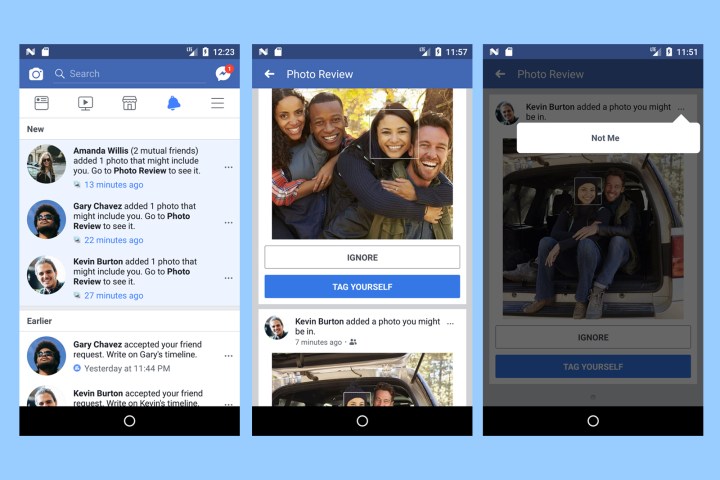
The first tool uses the same software that automatically tags you in photos to look for you in someone else’s profile picture. The tool is designed to combat social media impersonation. If you have the facial-recognition tool turned on, you will get a notification if Facebook spots your face in someone else’s profile picture.
Facebook will also begin to send users notifications if they detect your mug in a photo that wasn’t tagged. The option,
While users could turn facial recognition on and off before, Facebook is also simplifying the setting with a single control based on user feedback. Now, users can choose whether to use the facial recognition with one setting rather than setting all of the subcategories. The tools are also launching with expanded systems for visually impaired users that will now include names in the alt-text tool that describes what’s in a photo.
Facebook’s facial-recognition tools have been around since 2010. Earlier this year, Facebook launched other profile photo tools with a similar goal to protect users. The newest tools are rolling out soon, excluding Canada and the European Union, where facial recognition isn’t currently available.
Along with the facial-recognition tools, Facebook today also introduced new options designed for combatting harassment by preventing second accounts from a blocked user from contact and launching options for ignoring (but not blocking) messages.
For users that block a harasser, Facebook is working to help make sure the same person doesn’t create a second account to attempt to contact them after being blocked. The tool works by looking at different signals, such as the IP address, that suggests the new friend request or message is coming from someone the user has already blocked.
A new ignore feature for messages now allows users to stop receiving notifications for new messages without blocking the user entirely. Ignored messages also disable the tool that shows the sender when the messages have been read. The messages are moved to a filtered folder, where they can still be accessed.
The new tools for preventing harassment are a result of working with organizations and safety experts, including groups for domestic violence survivors, as well as discussing the tools with journalists, Facebook said.
Editors' Recommendations
- Your Facebook account could get multiple profiles for different interests
- Facial recognition tech for bears aims to keep humans safe
- Facebook is adding shopping to your mobile app
- U.S. studies new facial recognition tech built with masked faces in mind
- Facebook ordered to pay $650 million in facial recognition lawsuit




